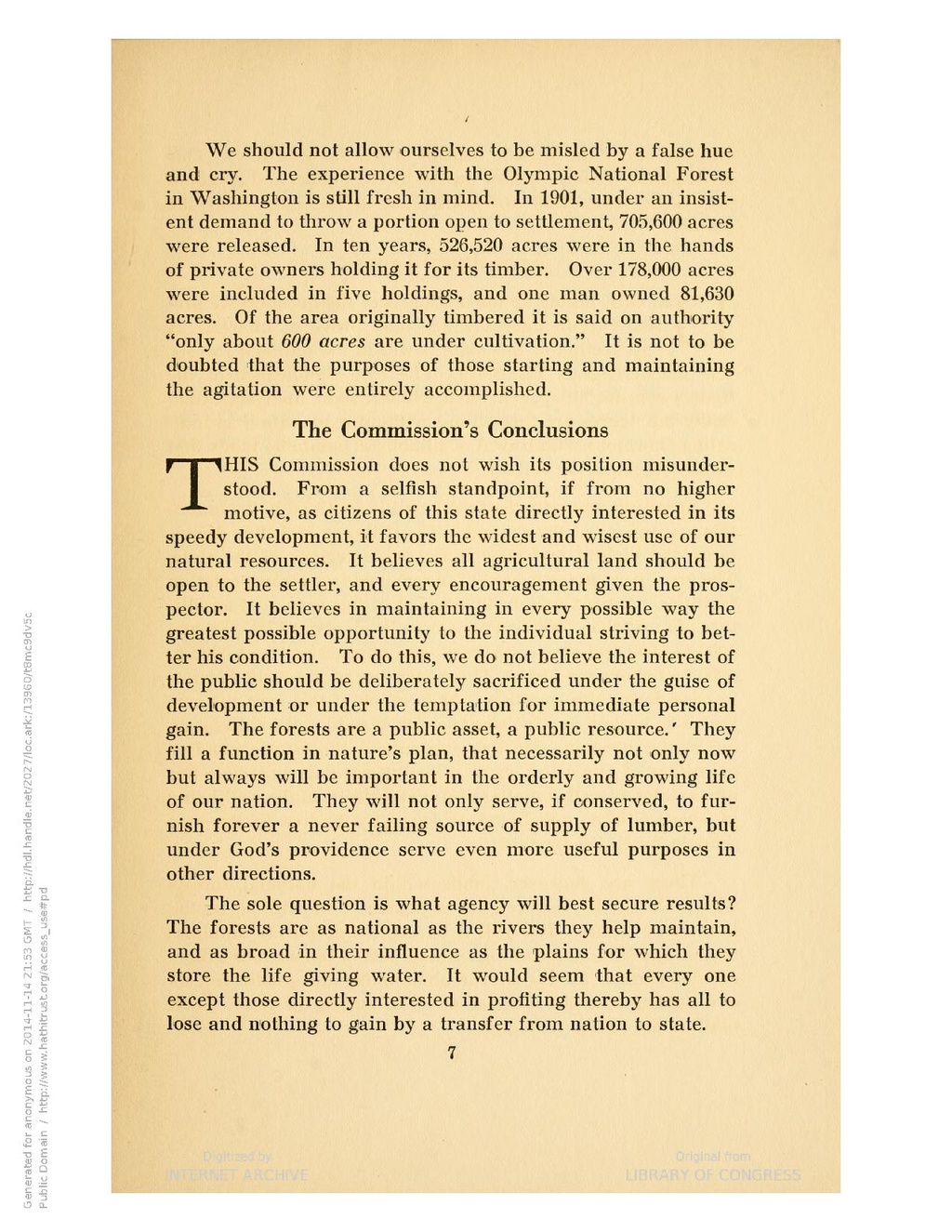We should not allow ourselves to be misled by a false hue and cry. The experience with the Olympic National Forest in Washington is still fresh in mind. In 1901, under an insistent demand to throw a portion open to settlement, 705,600 acres were released. In ten years, 526,520 acres were in the hands of private owners holding it for its timber. Over 178,000 acres were included in five holdings, and one man owned 81,630 acres. 0f the area originally timbered it is said on authority "only about 600 acres are under cultivation." It is not to be doubted that the purposes of those starting and maintaining the agitation were entirely accomplished.
The Commission's Conclusions
THIS Commission does not wish its position misunderstood. From a selfish standpoint, if from no higher motive, as citizens of this state directly interested in its speedy development, it favors the widest and wisest use of our natural resources. It believes all agricultural land should be open to the settler, and every encouragement given the prospector. It believes in maintaining in every possible way the greatest possible opportunity to the individual striving to better his condition. To do this, we do not believe the interest of the public should be deliberately sacrificed under the guise of development or under the temptation for immediate personal gain. The forests are a public asset, a public resource.' They fill a function in nature's plan, that necessarily not only now but always will be important in the orderly and growing life of our nation. They will not only serve, if conserved, to furnish forever a never failing source of supply of lumber, but under God's providence serve even more useful purposes in other directions.
The sole question is what agency will best secure results? The forests are as national as the rivers they help maintain, and as broad in their influence as the plains for which they store the life giving water. It would seem that every one except those directly interested in profiting thereby has all to lose and nothing to gain by a transfer from nation to state.
7
